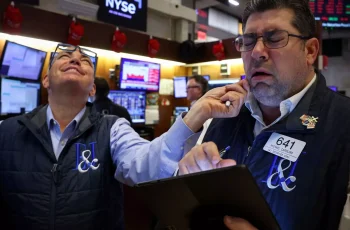Donald Trump’s recent tariff announcement has sent shockwaves through global markets, triggering a sharp drop in bond yields and a scramble by investors to seek safer assets. This exodus reflects deep uncertainty and eroding economic confidence, with fears of a global slowdown rising. The decision to implement tariffs risks not only damaging international relations but also undoing progress in the global economy.

In Europe, the German 10-year bund yield fell from 2.72% to 2.59%, underscoring the market’s anxiety. Analysts at Rabobank noted that even a reversal of these trade policies would offer only temporary relief. In the U.S., yields on short-term Treasurys dropped significantly, with the 10-year note now below the 4% threshold. This decline highlights a widespread retreat from riskier assets and signals recession concerns.
Japan, too, is feeling the pressure, as yields hit three-month lows. The rush to bonds, mirrored by falling equity prices, reflects investor fears of a worsening economic outlook. Economist George Lagarias questions the longevity of this bond rally, noting that the market, bearish since 2021, is now experiencing a surge that may not last.
Persistent inflation, central bank interventions, and geopolitical shocks add more uncertainty. A sudden shift in policy or unexpected economic data could deflate this rally, especially if central banks flood markets with supply. Their ongoing involvement—via rate cuts or asset purchases—may stabilize markets temporarily but fosters long-term dependency.

In sum, the market’s reaction to Trump’s tariffs underscores the volatility of today’s financial landscape. As global stakeholders navigate this turbulent terrain, the path ahead remains clouded by unpredictability, with confidence hanging in a delicate balance.

